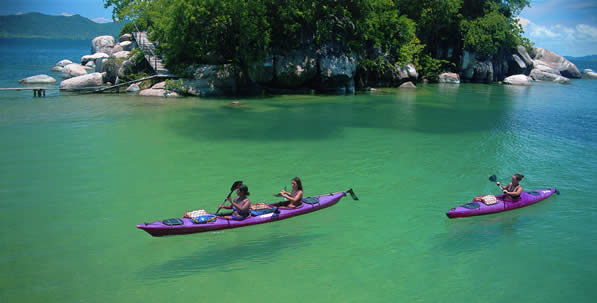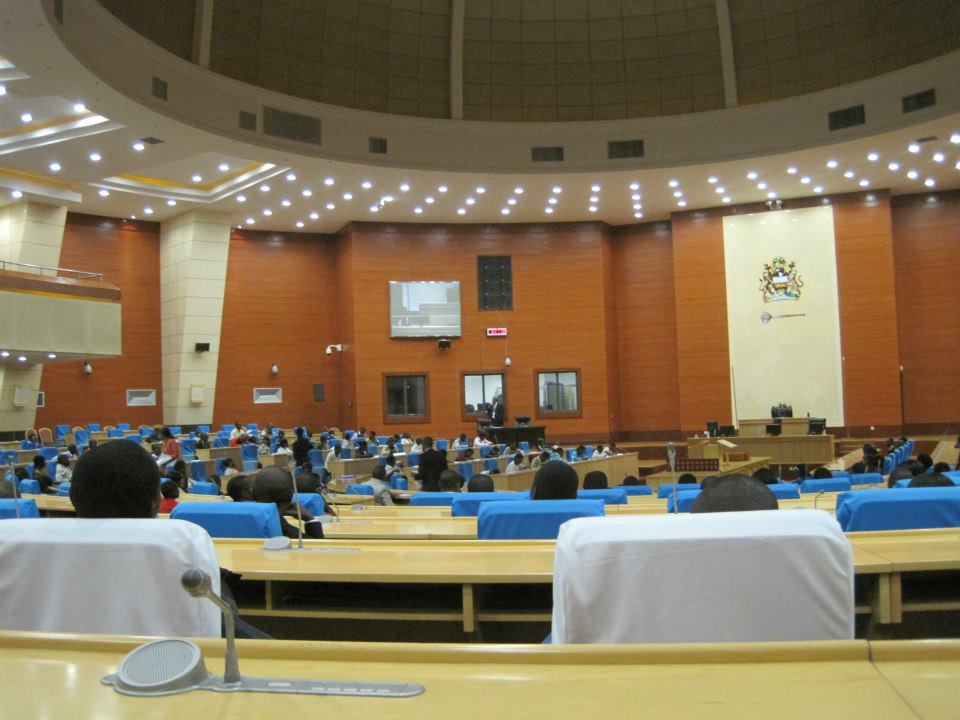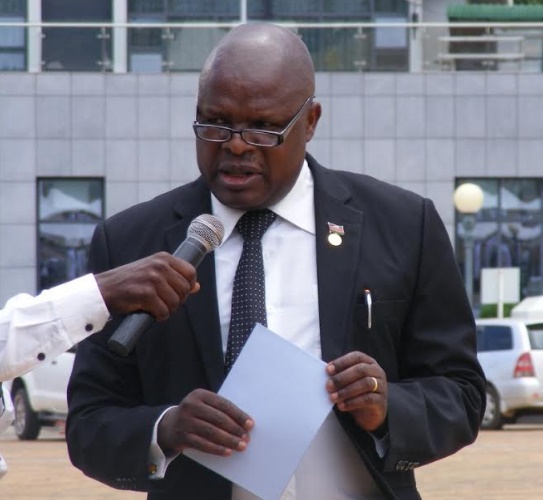Despite Tanzanian President Jakaya Kikwete’s insistence on a peaceful resolution to the Lake Nyasa dispute, tension continues to rise as elders dispute Malawi’s claim of ownership to the body of water.
Elders of three Tanzanian settlements on Lake Nyasa shoreline have strongly refuted claims by the Malawi government of a shoreline border, stating categorically that the boundary has always been in the middle with the water freely and equally shared by the riparian communities.
The elders were talking to the Minister for Foreign Affairs and International Co-operation, Mr Bernard Membe who visited Mbamba Bay, Liuli and Lituhi communities in Nyasa district over the weekend to get their views on a brewing border dispute, in which Malawi claims one hundred per cent ownership of the lake, basing its case on some aspects of the 1890 Heligoland Treaty.
“Malawi government officials are liars. We have never ever been part of Malawi. Our fathers were under the Germans and paid taxes to the German government and they told us that the border was in the middle of the lake,” said Mzee Gideon Ndembeka (85), a grandson of the man first installed by the Germans as the chief of Mbamba Bay, which is just across Nkata Bay in Malawi.
Mzee Ndembeka gave Mr Membe two books published by the University’s Missionary Society to Central Africa (UMSCA) in London in 1962, a year after Tanzania gained independence, which clearly showed the border was in the middle of the lake. Malawi gained its independence in 1964.
“We, all the elders are ready to die here but we shall never cede even an inch of our land to Malawi,” said Shaib Ahmed Ngalipa, who was born at Liuli and went to school there but was never told that they were at any one time, a part of Malawi.
Adding her voice to the highly charged and emotional chorus of rejecting Malawi’s claims, Mariam Chilundu (60) of Liuli said: “What our fellow woman (President Joyce Banda) wants to do is not true. This is not a man made pond but a God given mass of sweet water. The border between our two countries runs in the middle and has never ever been on our beaches.
“What I want to say is simply that the water is ours. Period,” said Cresensia Mayani (80), a hard line stance also taken by Michael Nyirenda (78) who said: “Actually we have no time to waste discussing this topic but we are happy that the matter is going to the United Nations.”
Mzee Daudi Haule Kitanji (88), said the Malawians were liars and “we are ready to testify before the International Court of Justice (ICJ),” as Mzee Conrad Chale intoned: “If she doesn’t want to talk, then let us get engaged,” meaning the people were ready for any eventuality, including military confrontation.
Elder Kitanji reminded the minister that they were the descendants of the Maji Maji War nationalist warriors “who kicked the Germans out of this country. Can we really now be beaten by Malawi?” he asked. If the scenario degenerated into a military confrontation, he said, Tanzania should not waste its army to fight Malawi but should instead arm the people to fight the invaders.
What the Malawians are claiming, said Mzee Ferdinand Ngatunga of Lituhi was very similar to what Dictator Idd Amin did 33 years ago. “We threw Amin out and he ended up dying in exile in Saudi Arabia. Does this grand-daughter of (Kamuzu) Banda (President Joyce Banda) want us to do the same to her?” he asked.
Mzee Absalom Mkoto Chale (88), appealed to the Malawi government to stop and reflect for a minute on the assistance given to their struggle for independence by the Father of the Nation, Mwalimu Julius Nyerere. “I think this little girl (President Banda) would better think twice before insisting on a senseless political pursuit,” he said.
However, Mr Raphael Simon Kambanga (67), a retired wildlife and natural resources management officer, said the government should also pay greater attention to developing the area, which was rather marginalized and neglected.
“We have two aerodromes here, one at Liuli and another at Mbamba Bay but they are all without care, he said. He appealed to the government to stimulate economic and business development in the area as well as education and health.
All the elders, however, agreed that there was extensive cultural and trade interaction between the people of the two sides of Lake Nyasa stretching to hundreds of years, perhaps more than any others on lakes that Tanzania shares with its neighbours. Apart from Lake Nyasa, Tanzania also shares Lake Tanganyika equally with the Democratic Republic of Congo (DRC) and Zambia.
It also has more than 51 per cent of Lake Victoria, the world’s second and Africa’s largest lake, which it shares with Uganda (49 per cent) and Kenya (one per cent). It also has the bigger swath of Lake Jipe, which it shares with Kenya.
In the Lake Nyasa dispute, Malawi has indicated that it favours taking the case to the ICJ while Tanzania thinks there is still big room for a diplomatic solution to the matter. The first meeting of the parties was held in Malawi late last month, while Lilongwe has asked for a postponement of a follow up meeting that was to take place in Dar es Salaam yesterday.
Mr Membe said Tanzania had a very strong case in its favour were the matter to land at the ICJ “as you cannot have a treaty that discriminates against others and denies them their basic human right as water is life itself,” he said. However, he said, “a case is a case and as a government, we are prepared for any eventuality,” he said.
He assured the people along the shores of Lake Nyasa of their safety, stability and peace and urged them to go on with their daily duties and activities without any fear of their lives “suddenly being disrupted. I can assure you that is out of the question,” he emphasized.





No comments! Be the first commenter?